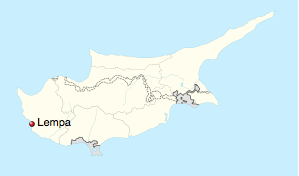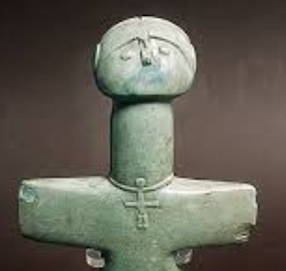Lempa Statues
- Tsegi Ruins Ch10
- Jan 1, 2019
- 2 min read

The Goddess of Death that influenced Katie was one of many fertility statues found in Lempa, Cyprus, the birthplace of Aphrodite.
Cursed Ancient Statue: The Goddess of Death, c. 3500 BC.
This curious limestone statue was unearthed at Lemb (Lempa), Cyprus in 1878. It has earned the nickname ‘Goddess of Death’ but its actual name is the 'Woman from Lemb’. Dating from 3500 BC, its real purpose is unknown but it may have been a fertility statue or a representation of a goddess whose name has been lost to time. This little innocuous looking statue has become famous for the deadly effect it has had on each of its owners.

The statue has belonged to at least four different families and each one has suffered a great amount of tragedy after acquiring the piece. Lord Elphont was the first owner. Within six years of buying the statue, all seven of his family members passed away. The second owner, Ivor Menucci and his whole family died within four years of attaining the statue. The third owner, Lord Thompson-Noel, suffered the death of his whole family also within 4 years. The statue eventually ended up the as property of Sir Alan Biverbrook and he, his wife, and their two daughters were the next to die.
To try and stop the curse from harming anyone else, Biverbrook’s two surviving sons donated the statue to the Royal Scottish Museum in Edinburgh. After that, the the museum curator who handled the statue died within a year. Today, the Women from Lemb statue remains tucked away safely behind glass at the museum where it can’t cause any more harm…hopefully.
The Goddess of Death was one of hundreds of fertility statues produced at Lempa, the birthplace of Aphrodite.


The village of Lempa is one of the most ancient in Cyprus. It is believed to have been first settled in the Chalcolithic Period (c. 3800–2500 BC), and a number of cruciform female figurines have been found from this era.
Last Blog Next Blog
Lempa Statues Roxie's C-section

or
or
or
Lempa Statues, Chapter 10





































Comments